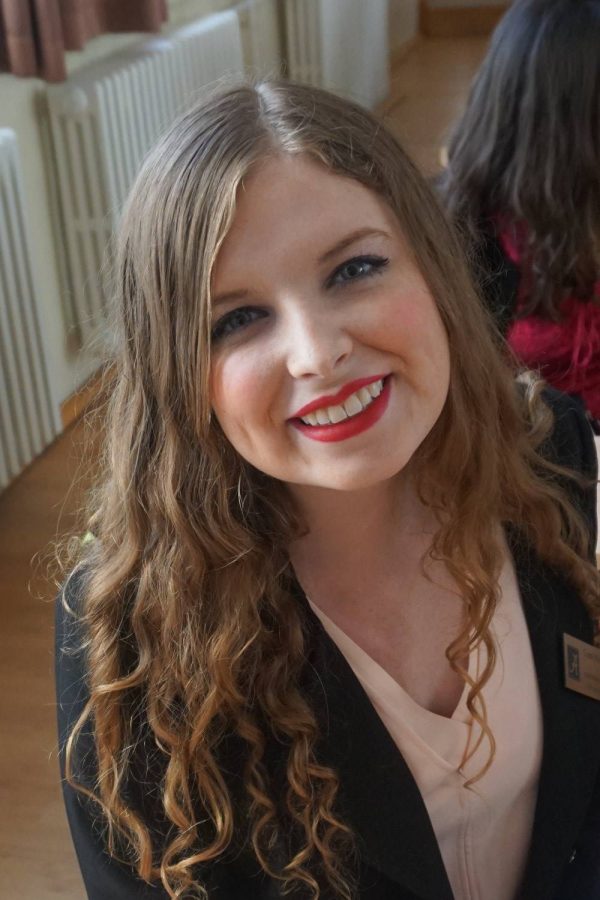It is no secret that there is a problem with the distribution of power at UA. With not-so-secret societies and inaccessible elite institutions like The Machine and Argentum having such a stronghold in the decision-making power of our university, it is almost understandable why one can result to hopeless apathy about their ability to create change (or, consequently, join these institutions). There are so many things about UA that need to be changed that will never even be brought to the table if these are the only voices heard. And it is possible for other voices to be heard. While yes, institutions and administrators and machine senators and board of trustees members have power, power lies elsewhere too. Power lies in the words of students who vocalize their visions for a better UA, in movements built through collaboration, in open dialogue, in action. It is imperative to the future of UA and the state of Alabama for us to build a community that is not afraid to challenge powers that be.
Almost as soon as I started my freshman year at the Capstone, UA was plastered over national news for its latest scandal—the blatant racism present in the sorority system, particularly in its recruitment. A group of passionate students organized a visible protest of sorority segregation that also garnered national attention. The organizing of these students, combined with the efforts of others individuals and communities, was crucial in formally integrating sororities. Of course, things weren’t perfect, and two years later, many on our campus were upset about the lack of formal institutions and processes by which one could challenge racism and promote diversity on campus. Legislation efforts for an official Office of Diversity were stalled, and things were in a state of limbo. Out of this frustration emerged in another visible campus movement, We Are Done. Because of the mass organization of students in a vocal protest with clear demands, the University had no choice but to respond to the requests of students. From this movement came the Intercultural Diversity Center and the impending Officer of Diversity. This past fall, inspired by the actions of Colin Kapernick, motivated by the presence of Milo Yiannapolus at UA, and floored by the countless hate-based discrimination and threats that went unattended by university officials, a large group of students organized the nationally recognized movement, #BamaSits. From this came a push to hire the diversity officer ASAP as well as better enforcement of the Student Code of Conduct in relation to race-based discrimination on behalf of students. After Trump issued a particularly harsh executive order on immigration from Muslim nations, a mass of students and professors organized a demonstration on the quad in order to protect over 40 students at UA affected by the new national policy. This was called the March of Diversity, and it resulted in official statements by university officials to aid the students affected. In all of these cases, direct action produced tangible results.
Many smaller movements have also enacted positive change on campus. One group of student effectively eliminated a poll tax on students by lobbying administration and calling upon legal forces when ignored. A student group I work with ran an escalated campaign of 2.5 years, including many banner drops and even a sit-in, which resulted in more protections for international garment workers. Other groups have been successful in gaining language respecting gender expression in class syllabi, and many others are in the process of trying to change the names of countless buildings at UA which honor slave owners and white supremacists. These smaller moments may not be reported by the New York Times, but they have been imperative in creating a better Capstone.
I would love if we could simply make requests of our higher powers and they would listen and respond with alacrity. I would love if every forum we had resulted in policy changes. I would love if every piece of legislation regarding campus diversity was implemented by university officials. And all of these things are necessary. However, frequently, they are not enough for figures of authority to act. That is why we must shift power away from only those with authority. Failure should not prompt apathy, but instead mobilize. When we build communities which do not shy away from tough conversations, communities which are not afraid to challenge superiors and mentors and friends, we build a movement that will not fracture even in the face of certain improbability. With love and respect and passion, we can change UA. We can build power in its people.
The Era of Trump ushers in a unique set of challenges, local and national. It’s time to unite and fight back, UA. Do not let movements die.
Ciara Malaugh is a senior majoring in political science.






